- Resource recovery
- Resource recovery from excreta, faecal sludge or wastewater
- Safisana – Producing organic fertilizer and biogas in Ghana
Safisana – Producing organic fertilizer and biogas in Ghana
16.8k views
- Elisabeth
-
- User is blocked
- Freelance consultant since 2012
Less- Posts: 3372
- Karma: 54
- Likes received: 932
Re: Safi Sana: What do you think SuSanA members - can it really kill three birds with one stone?
This is an update on the work that Safisana is doing on resource recovery in Ghana:
Cogs within the Circular Economy: Waste to Resource in Accra, Ghana by Aart Van Den Beukel
Presented at FSM5 Conference in Cape Town in February 2019:
fsm5.susana.org/images/FSM_Conference_Ma...Sana-FSM2019_1.0.pdf
And this is their slide on financing principles:
I would like to know how many of those faecal sludge treatment plants (factories) they have in operation and where? Also if there is any donor funding for their work at present?
(in an earlier post on 30 October 2015 Aart said: "The initial investment is done with public and private money. The OPEX is covered by sales of power to the grid, sale of the compost and seedlings. In the coming year we are building a bigger factory that will handle 25 tonnes of waste per day, which is minimum scale that is needed to make operations profitable." I would like to know what "public and private money" means here)
Regards,
Elisabeth
Cogs within the Circular Economy: Waste to Resource in Accra, Ghana by Aart Van Den Beukel
Presented at FSM5 Conference in Cape Town in February 2019:
fsm5.susana.org/images/FSM_Conference_Ma...Sana-FSM2019_1.0.pdf
And this is their slide on financing principles:
I would like to know how many of those faecal sludge treatment plants (factories) they have in operation and where? Also if there is any donor funding for their work at present?
(in an earlier post on 30 October 2015 Aart said: "The initial investment is done with public and private money. The OPEX is covered by sales of power to the grid, sale of the compost and seedlings. In the coming year we are building a bigger factory that will handle 25 tonnes of waste per day, which is minimum scale that is needed to make operations profitable." I would like to know what "public and private money" means here)
Regards,
Elisabeth
Dr. Elisabeth von Muench
Freelance consultant on environmental and climate projects
Freelance consultant on environmental and climate projects
Attachments:
-
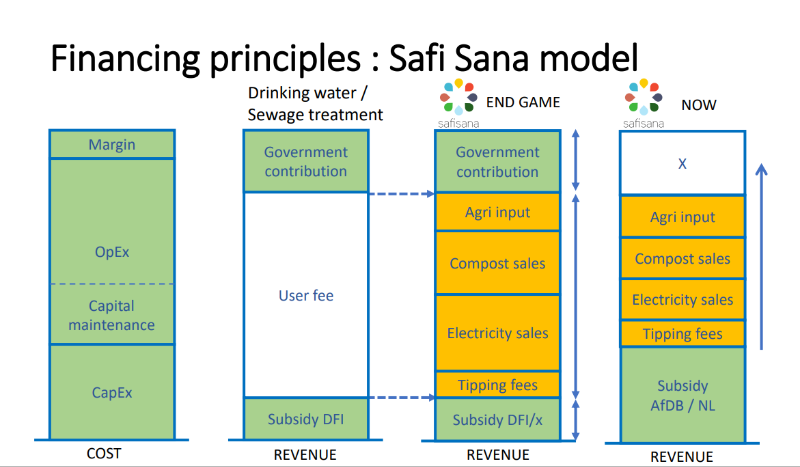 PowerPoint...ion1.png
(Filesize: 98KB)
PowerPoint...ion1.png
(Filesize: 98KB)
The following user(s) like this post: Fadli
Please Log in to join the conversation.
You need to login to replyRe: Safi Sana: What do you think SuSanA members - can it really kill three birds with one stone?
Dear Katrin,
Thank you for that.
- Involvement in the processes. Basically: we are involved in all parts of the chain, from input, processing to output. But, in some cases we are ‘owner’ of the process, in some cases we work with local private sector. We have constructed a number of public toilets to test management, profitability and effects of toilet technologies on waste quality and end-products. In the coming years we will also work with existing toilet operators. That also applies for truck operators. We work with truck operators that already have a business and meet the quality standards to become part of our network. The factory and all marketing/sales activities are fully in our hands, however we do work with local organisations and government to promote products.
- We make a difference between investment cost of project and hardware (CAPEX) and operational cost (OPEX) of sourcing, processing and marketing. The initial investment is done with public and private money. The OPEX is covered by sales of power to the grid, sale of the compost and seedlings. In the coming year we are building a bigger factory that will handle 25 tonnes of waste per day, which is minimum scale that is needed to make operations profitable.
- Marketing of end-products: compost, irrigation water and biogas. The compost has been tested to meet demand of the farmers and the local certification rules. One way of promoting the product is through the International Fertiliser Development Centre (IFDC) in Accra. IFDC has agro input promotion programs that will give us access to a large number of farmers in Greater Accra and beyond. In addition, with support of the ViaWater program with support of the University of Wageningen and a Dutch seed company, we are setting up a nursery program to grow vegetable seedlings using our compost and treated nutrient rich water from the treatment process. That will have multiple effects: a way to make efficient use of our treated water and compost and to extend our product portfolio for agro-input material. The biogas is used to produce electricity. The power we generated is distributed to the local grid in the hand of the Electricity Company of Ghana. We have signed a Power Purchase Agreement that will guarantee a stable source of income aside the agro-input products.
Thank you!
Aart
Thank you for that.
- Involvement in the processes. Basically: we are involved in all parts of the chain, from input, processing to output. But, in some cases we are ‘owner’ of the process, in some cases we work with local private sector. We have constructed a number of public toilets to test management, profitability and effects of toilet technologies on waste quality and end-products. In the coming years we will also work with existing toilet operators. That also applies for truck operators. We work with truck operators that already have a business and meet the quality standards to become part of our network. The factory and all marketing/sales activities are fully in our hands, however we do work with local organisations and government to promote products.
- We make a difference between investment cost of project and hardware (CAPEX) and operational cost (OPEX) of sourcing, processing and marketing. The initial investment is done with public and private money. The OPEX is covered by sales of power to the grid, sale of the compost and seedlings. In the coming year we are building a bigger factory that will handle 25 tonnes of waste per day, which is minimum scale that is needed to make operations profitable.
- Marketing of end-products: compost, irrigation water and biogas. The compost has been tested to meet demand of the farmers and the local certification rules. One way of promoting the product is through the International Fertiliser Development Centre (IFDC) in Accra. IFDC has agro input promotion programs that will give us access to a large number of farmers in Greater Accra and beyond. In addition, with support of the ViaWater program with support of the University of Wageningen and a Dutch seed company, we are setting up a nursery program to grow vegetable seedlings using our compost and treated nutrient rich water from the treatment process. That will have multiple effects: a way to make efficient use of our treated water and compost and to extend our product portfolio for agro-input material. The biogas is used to produce electricity. The power we generated is distributed to the local grid in the hand of the Electricity Company of Ghana. We have signed a Power Purchase Agreement that will guarantee a stable source of income aside the agro-input products.
Thank you!
Aart
Aart van den Beukel
Managing Director
Safi Sana Holding BV
Office: Sleutelsteeg 11, PO Box 5064, 1380 GB, Weesp, The Netherlands
Mobile: +31 (0)6 26086554
Skype: aartvdbeukel
www.safisana.org
Managing Director
Safi Sana Holding BV
Office: Sleutelsteeg 11, PO Box 5064, 1380 GB, Weesp, The Netherlands
Mobile: +31 (0)6 26086554
Skype: aartvdbeukel
www.safisana.org
Please Log in to join the conversation.
You need to login to replyRe: Safi Sana: What do you think SuSanA members - can it really kill three birds with one stone?
Dear Hajo,
Thank you for the response on our post. Your points are spot on and valid. Let me summarize your critical views/questions and elaborate on them below.
You say that it is better to first test the concept before expanding to ‘everybody’, primarily because there are two challenges you foresee in other markets (like perhaps in Tanzania):
1. Public toilet services including collection may be accessible and a financially viable case in Ghana but that is not the case everywhere.
2. Organic waste sourcing, specifically separation at source is a cumbersome exercise and what happens to the rest of solid waste that may not be used by us?
Here is my feedback on the testing aspect. In our project, testing is done to find out about the local need, the demand, the structures and how to design the model to make it work. Testing captures technical, commercial and social/marketing aspects that need monitoring and improvement. That is a constant process that allows you to become smarter and to grow stronger. At the same time you want to capture elements that can be used in other projects. Not only in Ghana but also elsewhere.
We are very aware that there is not a ‘one solution fits all’ but the processes we follow in the design and execution of the project can be used also in other markets. In some cases we may use solutions that we have used before, in some cases we will work with other existing solutions. The objective is to link all components of input, process and output that will lead to a nice closed loop model.
You specifically refer to accessibility of public toilet services. As you rightly state, for this one Ghana may be easier then for example Tanzania. The entire chain only works if all parts of the chain are financially sustainable. So for the case of Tanzania, I am not in the position here to give a straightforward answer or solution to that. It would be interesting to discuss that further to see what can be done there.
On your point of sourcing of solid organic waste: In our model we see solid organic waste as an important source in addition to faecal sludge. Getting a clean organic source is a project on its own with challenges because there are many stakeholders, people’s habits and economic triggers. In our project we currently focus on food markets as the biggest source. Slaughter waste is another one. Households are what we are working on now for testing at smaller scale and to see how to scale that – it is definitely not the lowest hanging fruit. You are right that with this approach we cannot solve the entire problem related to solid waste straight away. However, by decreasing the amount of municipal solid waste you will decrease the problem and create the awareness that waste can be a viable source for re-use in other products. That is a development we see in the market where we operate.
I would like to conclude by saying that in order to really make impact at large scale, we feel that partnering with other practitioners is key. Sharing of experiences both good and bad is what can make solutions better.
We stay in touch!
Aart
Thank you for the response on our post. Your points are spot on and valid. Let me summarize your critical views/questions and elaborate on them below.
You say that it is better to first test the concept before expanding to ‘everybody’, primarily because there are two challenges you foresee in other markets (like perhaps in Tanzania):
1. Public toilet services including collection may be accessible and a financially viable case in Ghana but that is not the case everywhere.
2. Organic waste sourcing, specifically separation at source is a cumbersome exercise and what happens to the rest of solid waste that may not be used by us?
Here is my feedback on the testing aspect. In our project, testing is done to find out about the local need, the demand, the structures and how to design the model to make it work. Testing captures technical, commercial and social/marketing aspects that need monitoring and improvement. That is a constant process that allows you to become smarter and to grow stronger. At the same time you want to capture elements that can be used in other projects. Not only in Ghana but also elsewhere.
We are very aware that there is not a ‘one solution fits all’ but the processes we follow in the design and execution of the project can be used also in other markets. In some cases we may use solutions that we have used before, in some cases we will work with other existing solutions. The objective is to link all components of input, process and output that will lead to a nice closed loop model.
You specifically refer to accessibility of public toilet services. As you rightly state, for this one Ghana may be easier then for example Tanzania. The entire chain only works if all parts of the chain are financially sustainable. So for the case of Tanzania, I am not in the position here to give a straightforward answer or solution to that. It would be interesting to discuss that further to see what can be done there.
On your point of sourcing of solid organic waste: In our model we see solid organic waste as an important source in addition to faecal sludge. Getting a clean organic source is a project on its own with challenges because there are many stakeholders, people’s habits and economic triggers. In our project we currently focus on food markets as the biggest source. Slaughter waste is another one. Households are what we are working on now for testing at smaller scale and to see how to scale that – it is definitely not the lowest hanging fruit. You are right that with this approach we cannot solve the entire problem related to solid waste straight away. However, by decreasing the amount of municipal solid waste you will decrease the problem and create the awareness that waste can be a viable source for re-use in other products. That is a development we see in the market where we operate.
I would like to conclude by saying that in order to really make impact at large scale, we feel that partnering with other practitioners is key. Sharing of experiences both good and bad is what can make solutions better.
We stay in touch!
Aart
Aart van den Beukel
Managing Director
Safi Sana Holding BV
Office: Sleutelsteeg 11, PO Box 5064, 1380 GB, Weesp, The Netherlands
Mobile: +31 (0)6 26086554
Skype: aartvdbeukel
www.safisana.org
Managing Director
Safi Sana Holding BV
Office: Sleutelsteeg 11, PO Box 5064, 1380 GB, Weesp, The Netherlands
Mobile: +31 (0)6 26086554
Skype: aartvdbeukel
www.safisana.org
Please Log in to join the conversation.
You need to login to reply- Katrin
-
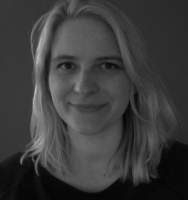
- I am coordinating SuSanA's thematic discussion series. Let me know if you have any questions!
Less- Posts: 71
- Karma: 8
- Likes received: 35
Re: Safi Sana: What do you think SuSanA members - can it really kill three birds with one stone?
Dear Aart,
Thank you for presenting the work of Safi Sana and congratulations on your nomination for the Sarphati Sanitation Award for young entrepreneurs.
The SuSanA Forum recently hosted a thematic discussion on Urban Sanitation Finance , which also addressed the question of ‘trade’ (i.e. the sale of re-use products) as a component for reaching city level sustainable full cost recovery. (See #14117 for example). During the discussion, participants both highlighted the potential of trade to finance sanitation but also challenged the assumption that the sale of waste products could have a ‘real’ impact. The success of your project highlights the potential of trade.
I have a couple of questions:
- Is Safi Sana directly involved in all of the three stages (i.e. collection, treatment, and sale) or are you collaborating with collectors for instance who are paid for delivering waste at the treatment facility?
- How is the treatment facility financed? Put differently, how big is the ‘trade’ component among the others Ts? Does trade cover all operational costs?
- You write that Safi Sana’s work also includes the marketing of end-products. Can you tell us a little bit more about developing marketing measures in this regard? What has worked and what has not?
Thanks you!
- Katrin
Thank you for presenting the work of Safi Sana and congratulations on your nomination for the Sarphati Sanitation Award for young entrepreneurs.
The SuSanA Forum recently hosted a thematic discussion on Urban Sanitation Finance , which also addressed the question of ‘trade’ (i.e. the sale of re-use products) as a component for reaching city level sustainable full cost recovery. (See #14117 for example). During the discussion, participants both highlighted the potential of trade to finance sanitation but also challenged the assumption that the sale of waste products could have a ‘real’ impact. The success of your project highlights the potential of trade.
I have a couple of questions:
- Is Safi Sana directly involved in all of the three stages (i.e. collection, treatment, and sale) or are you collaborating with collectors for instance who are paid for delivering waste at the treatment facility?
- How is the treatment facility financed? Put differently, how big is the ‘trade’ component among the others Ts? Does trade cover all operational costs?
- You write that Safi Sana’s work also includes the marketing of end-products. Can you tell us a little bit more about developing marketing measures in this regard? What has worked and what has not?
Thanks you!
- Katrin
Dr. Katrin Dauenhauer
SuSanA Thematic Discussion Series Coordinator
Bonn, Germany
SuSanA Thematic Discussion Series Coordinator
Bonn, Germany
Please Log in to join the conversation.
You need to login to reply- hajo
-
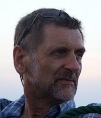
- retired in Germany... but still interested in water and sanitation... especially in OSS... and especially in Africa...
Less- Posts: 288
- Karma: 15
- Likes received: 156
Re: Safi Sana: What do you think SuSanA members - can it really kill three birds with one stone?
Hi Aart,
Thanks for the presentation of SafiSana and the invitation for comments.
Firstly I welcome your activity because it is also my vision, that sanitation chains for ‘peri-/urban / low income / high density‘ areas should be run on a commercial / financially sustainable basis. And I appreciate you people have taken a decisive step to try such undertaking.
But there two aspects which make me think that the aspect of ‘financial viability’ has taken preference over ‘providing services for the urban masses’. Whereas I agree that your approach may be neither wrong nor unfair. Possibly you first have to test your technique, your cost/revenue ratio, your acceptance by consumers, test the sustainability of your undertaking under a less challenging environment before expanding to ‘everybody’.
What I mean is the following: you collect faecal sludge from public toilets. They are possibly better accessible than most/ or majority of private toilet pits. You have possibly built them with easy access and you can empty those using vacuum trucks. And from my working in WASH in Kumasi/Ghana I know that Ghanaians have a preference for public toilets so that your service can be more easily up-scaled. Not so in Tanzania where public toilets exist only in markets and bus stands, but the majority of the urban masses depend on household pit latrines – difficult to access, not being designed to be emptied and also being used as solid waste dump. Your current service chains (for emptying and transport) may not function under these conditions and will have to look quite different and be possibly more costly. That is actually the challenge for us!
A similar aspect applies for ‘the organic waste ... collected from local households, public/ school toilets and food waste producing businesses’. Schools and businesses provide organic waste at scale and possibly agree to separate it if you commit to collect it. It will be difficult to introduce waste separation at scale to average local households so that you can easily collect organic waste at large quantities – and who collects the rest? Your service is geared at providing your factory with inputs rather than helping the urban masses getting rid of their solid waste in general. Neither wrong nor unfair as I said before but also not a solution to the solid waste problem in high density / low income areas in Tanzania.
I look forward to hear further about the development of your business and may come back to you once we have more concrete ideas how to develop a sanitation business in Moshi.
Ciao Hajo
Thanks for the presentation of SafiSana and the invitation for comments.
Firstly I welcome your activity because it is also my vision, that sanitation chains for ‘peri-/urban / low income / high density‘ areas should be run on a commercial / financially sustainable basis. And I appreciate you people have taken a decisive step to try such undertaking.
But there two aspects which make me think that the aspect of ‘financial viability’ has taken preference over ‘providing services for the urban masses’. Whereas I agree that your approach may be neither wrong nor unfair. Possibly you first have to test your technique, your cost/revenue ratio, your acceptance by consumers, test the sustainability of your undertaking under a less challenging environment before expanding to ‘everybody’.
What I mean is the following: you collect faecal sludge from public toilets. They are possibly better accessible than most/ or majority of private toilet pits. You have possibly built them with easy access and you can empty those using vacuum trucks. And from my working in WASH in Kumasi/Ghana I know that Ghanaians have a preference for public toilets so that your service can be more easily up-scaled. Not so in Tanzania where public toilets exist only in markets and bus stands, but the majority of the urban masses depend on household pit latrines – difficult to access, not being designed to be emptied and also being used as solid waste dump. Your current service chains (for emptying and transport) may not function under these conditions and will have to look quite different and be possibly more costly. That is actually the challenge for us!
A similar aspect applies for ‘the organic waste ... collected from local households, public/ school toilets and food waste producing businesses’. Schools and businesses provide organic waste at scale and possibly agree to separate it if you commit to collect it. It will be difficult to introduce waste separation at scale to average local households so that you can easily collect organic waste at large quantities – and who collects the rest? Your service is geared at providing your factory with inputs rather than helping the urban masses getting rid of their solid waste in general. Neither wrong nor unfair as I said before but also not a solution to the solid waste problem in high density / low income areas in Tanzania.
I look forward to hear further about the development of your business and may come back to you once we have more concrete ideas how to develop a sanitation business in Moshi.
Ciao Hajo
We can't solve problems by using the same kind of thinking we used when we created them.
Albert Einstein
Any intelligent fool can make things bigger and more complex... It takes a touch of a genius - and a lot of courage to move in the opposite direction.
E.F. Schumacher
Everything should be made as simple as possible, but not simpler.
Albert Einstein
Albert Einstein
Any intelligent fool can make things bigger and more complex... It takes a touch of a genius - and a lot of courage to move in the opposite direction.
E.F. Schumacher
Everything should be made as simple as possible, but not simpler.
Albert Einstein
The following user(s) like this post: Carol McCreary
Please Log in to join the conversation.
You need to login to replyRe: Safisana – Producing organic fertilizer and biogas in Ghana (Sarphati Sanitation Awards 2015 Nominee)
The issue
For many densely populated settlements (slums) the availability of clean and hygienic sanitation as well as management of solid and liquid waste poses a huge problem. In addition agriculture often suffers from famished soils, and access to reliable, green energy stymies growth and strains the environment.
In Ghana alone fewer than 15% of the population has access to improved sanitation, 20% has no toilet at all and the majority of 1.800 cases of cholera yearly can be rooted back to faecal contamination. Accra, the capital city of Ghana, generates 1,700 tons of waste per day. Collection capacity is 65% and treatment capacity limited to 10%.
At Safi Sana we believe that these fundamental challenges can be combined to provide a sustainable solution. The core idea is to treat waste as a valuable resource and build a cyclical and self-sustaining organization around this concept.
Treating Waste and Sanitation as a business opportunity
Safi Sana builds scalable turn-key factories for the input and processing of faecal and organic waste to produce and market clean renewable energy and organic fertilizer. Our services include the logistical framework for organic input as well as marketing and sales of end-products.
At the beginning of the cycle, organic waste is collected from local households, public/ school toilets and food waste producing businesses. In the Safi Sana model, waste is turned into biogas, organic fertilizer and irrigation water. The organic fertilizer is sold to local farmers. The biogas is further processed and turned into clean energy. The electricity is sold to the local electricity grid on the basis of an agreed feed-in tariff per kWh and heat is used to support the biogas process. Each factory serves a market within a radius of approximately 30 kilometers.
The resulting revenue covers ongoing operational costs of local teams, logistics, knowledge transfer, systems monitoring, and maintenance to ensure long term success.
The Safi Sana formula is designed to be commercially self-sufficient and operated by local partners. To establish the long-term viability of the operations, we stay connected to the project for the first years and set up appropriate monitoring systems and training programs for knowledge transfer.
History
Safi Sana Holding BV was founded in 2010 as an initiative of Aqua for All Foundation, Rabobank, Shell and DHV. In 2010, we started a pilot in Accra, Ghana to test the model of waste collection from improved public toilets and organic waste sources and the production of organic fertilizer and biogas.
Safi Sana toilets
The pilot was successful and we have since constructed a small-scale production site and several public toilets for full scale testing. This site has treated more than 350 tonnes of waste to validate the production unit. Currently, Safi Sana has a team of 12 people, in Ghana and The Netherlands, responsible for the technical design, project management and marketing & sales.
The operation is currently scaling up in Ashaiman, a big urban settlement with 240,000 people located 15 km east of Accra. This facility will have a 25 tons waste treatment capacity per day in Q1 2016.
Safisana Organic Fertiliser and Nursery
Impact of 25 tonnes treatment facility:
An integrated waste-re-use approach to solving sanitary, waste, soil and energy issues can have a long lasting positive impact on living conditions, the environment, health, and local entrepreneurship:
- Improved environmental sanitation for 125,000 people.
- 25 tons of fecal sludge and solid organic waste processed daily.
- Producing 2,500 kg daily of organic fertilizer serving 50 hectares of farm land
- 2,200 kWh to serve 3,000 people with green power on a daily basis.
Future plans
The factory has a central position in the model and is a vehicle for future development and adaptations; at the input side of the factory to include other organic sources and at the output side to provide for instance seedlings and cooling for farmers or bio-fuel for transport.
Our objective is to roll out 8 closed-loop systems similar to Ashaiman by 2020 in but also outside of Africa and thereby empower more than 1.000.001 lives for good.
Safi Sana website: www.safisana.org/en/
More on the Safi Sana projects: www.safisana.org/projects/
We welcome comments, questions or suggestions, both on the technical aspects and in terms of new areas where the Safi Sana expertise can make a difference.
For many densely populated settlements (slums) the availability of clean and hygienic sanitation as well as management of solid and liquid waste poses a huge problem. In addition agriculture often suffers from famished soils, and access to reliable, green energy stymies growth and strains the environment.
In Ghana alone fewer than 15% of the population has access to improved sanitation, 20% has no toilet at all and the majority of 1.800 cases of cholera yearly can be rooted back to faecal contamination. Accra, the capital city of Ghana, generates 1,700 tons of waste per day. Collection capacity is 65% and treatment capacity limited to 10%.
At Safi Sana we believe that these fundamental challenges can be combined to provide a sustainable solution. The core idea is to treat waste as a valuable resource and build a cyclical and self-sustaining organization around this concept.
Treating Waste and Sanitation as a business opportunity
Safi Sana builds scalable turn-key factories for the input and processing of faecal and organic waste to produce and market clean renewable energy and organic fertilizer. Our services include the logistical framework for organic input as well as marketing and sales of end-products.
At the beginning of the cycle, organic waste is collected from local households, public/ school toilets and food waste producing businesses. In the Safi Sana model, waste is turned into biogas, organic fertilizer and irrigation water. The organic fertilizer is sold to local farmers. The biogas is further processed and turned into clean energy. The electricity is sold to the local electricity grid on the basis of an agreed feed-in tariff per kWh and heat is used to support the biogas process. Each factory serves a market within a radius of approximately 30 kilometers.
The resulting revenue covers ongoing operational costs of local teams, logistics, knowledge transfer, systems monitoring, and maintenance to ensure long term success.
The Safi Sana formula is designed to be commercially self-sufficient and operated by local partners. To establish the long-term viability of the operations, we stay connected to the project for the first years and set up appropriate monitoring systems and training programs for knowledge transfer.
History
Safi Sana Holding BV was founded in 2010 as an initiative of Aqua for All Foundation, Rabobank, Shell and DHV. In 2010, we started a pilot in Accra, Ghana to test the model of waste collection from improved public toilets and organic waste sources and the production of organic fertilizer and biogas.
Safi Sana toilets
The pilot was successful and we have since constructed a small-scale production site and several public toilets for full scale testing. This site has treated more than 350 tonnes of waste to validate the production unit. Currently, Safi Sana has a team of 12 people, in Ghana and The Netherlands, responsible for the technical design, project management and marketing & sales.
The operation is currently scaling up in Ashaiman, a big urban settlement with 240,000 people located 15 km east of Accra. This facility will have a 25 tons waste treatment capacity per day in Q1 2016.
Safisana Organic Fertiliser and Nursery
Impact of 25 tonnes treatment facility:
An integrated waste-re-use approach to solving sanitary, waste, soil and energy issues can have a long lasting positive impact on living conditions, the environment, health, and local entrepreneurship:
- Improved environmental sanitation for 125,000 people.
- 25 tons of fecal sludge and solid organic waste processed daily.
- Producing 2,500 kg daily of organic fertilizer serving 50 hectares of farm land
- 2,200 kWh to serve 3,000 people with green power on a daily basis.
Future plans
The factory has a central position in the model and is a vehicle for future development and adaptations; at the input side of the factory to include other organic sources and at the output side to provide for instance seedlings and cooling for farmers or bio-fuel for transport.
Our objective is to roll out 8 closed-loop systems similar to Ashaiman by 2020 in but also outside of Africa and thereby empower more than 1.000.001 lives for good.
Safi Sana website: www.safisana.org/en/
More on the Safi Sana projects: www.safisana.org/projects/
We welcome comments, questions or suggestions, both on the technical aspects and in terms of new areas where the Safi Sana expertise can make a difference.
Aart van den Beukel
Managing Director
Safi Sana Holding BV
Office: Sleutelsteeg 11, PO Box 5064, 1380 GB, Weesp, The Netherlands
Mobile: +31 (0)6 26086554
Skype: aartvdbeukel
www.safisana.org
Managing Director
Safi Sana Holding BV
Office: Sleutelsteeg 11, PO Box 5064, 1380 GB, Weesp, The Netherlands
Mobile: +31 (0)6 26086554
Skype: aartvdbeukel
www.safisana.org
Attachments:
-
 forumshapati.png
(Filesize: 211KB)
forumshapati.png
(Filesize: 211KB)
-
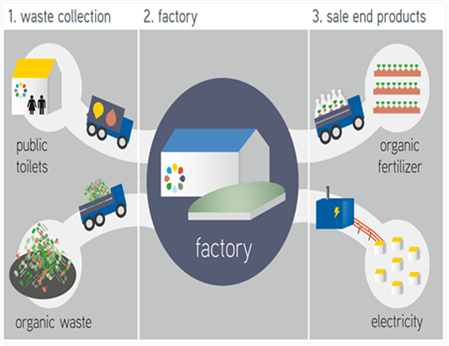 mkkk.png
(Filesize: 96KB)
mkkk.png
(Filesize: 96KB)
-
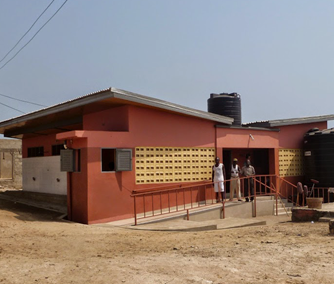 forumshapati2.png
(Filesize: 134KB)
forumshapati2.png
(Filesize: 134KB)
-
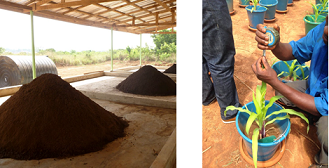 falta2.png
(Filesize: 132KB)
falta2.png
(Filesize: 132KB)
-
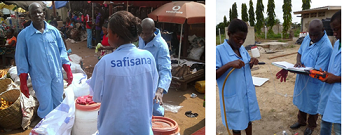 falta.png
(Filesize: 126KB)
falta.png
(Filesize: 126KB)
The following user(s) like this post: Carol McCreary, hajo, ggalli, Katrin, ZanaAfrica
Please Log in to join the conversation.
You need to login to replyUnder construction: the Safi Sana waste re-use factory for bio-fertiliser and energy production. Human faeces and organic waste as input.
Dear all,
Safi Sana is a concept that aims to collect faecal and organic waste from settlements as a raw material for the production and sale of bio-fertiliser and power for the local market. My name is Aart van den Beukel and I am the director of the Safi Sana Holding Ltd and based in The Netherlands (www.safisana.org/en/). Safi Sana Ghana ltd is our subsidiary in Ghana with a team of 10 people including a waste expert, a fertiliser expert, and a financial accounting and procurement team.
Safi Sana started a pilot set-up in Ashaiman, Ghana, in 2010. Since then we have constructed a three public toilets with a total of 35 seats with paid services, a small-scale anaerobic biogas treatment unit and a compost plant. Apart from technical tests, we have done a lot of work in analysing and doing tests in the local market on issues related to waste management, sanitation services and sale of compost and electricity.
To date, the project has been funded through various sources, including Aqua for All Foundation, the Dutch Ministry of Foreign Affairs, the Ministry of Energy in Ghana, private companies and private investors. In November 2013 Safi Sana Ghana Ltd and TREND, signed a contract with the African Water Facility/African Development Bank (the African Water Facility (AWF) is financially supported by the Bill & Melinda Gates Foundation *), to develop a large-scale demonstration plant in the same target area. The project is done in cooperation with the Ashaiman Municipality and with support of the relevant ministries in Ghana. The Factory will have a daily treatment capacity of 25 tonnes of mixed faecal and organic waste. We intend to generate around 2,200 kWh(e) and 2 tonnes of compost daily. The electricity is fed into the local grid and the compost is sold to farmers in the area. We expect to be fully operational in the second quarter of 2015.
The process of starting this project to getting where we are now has been long and has not always been easy (as you might have expected!). To name a few hurdles:
Regards,
Aart
www.safisana.org/en/
P.S.
Information about our project on the Africa Water Facility (AWF) website:
www.africanwaterfacility.org/en/projects...zers-and-energy-152/
More sanitation projects supported by the AWF:
www.africanwaterfacility.org/en/projects/2/#c3769
* It was 12 Mio USD in 2011 to the African Development Bank into the Africa Water Facility funding scheme, see this short grant description:
www.gatesfoundation.org/How-We-Work/Quic...s/2011/06/OPP1029036
"to improve the living conditions of the non-sewered urban-poor in Africa through provision of affordable and sustainable sanitation tools and technologies”
Safi Sana is a concept that aims to collect faecal and organic waste from settlements as a raw material for the production and sale of bio-fertiliser and power for the local market. My name is Aart van den Beukel and I am the director of the Safi Sana Holding Ltd and based in The Netherlands (www.safisana.org/en/). Safi Sana Ghana ltd is our subsidiary in Ghana with a team of 10 people including a waste expert, a fertiliser expert, and a financial accounting and procurement team.
Safi Sana started a pilot set-up in Ashaiman, Ghana, in 2010. Since then we have constructed a three public toilets with a total of 35 seats with paid services, a small-scale anaerobic biogas treatment unit and a compost plant. Apart from technical tests, we have done a lot of work in analysing and doing tests in the local market on issues related to waste management, sanitation services and sale of compost and electricity.
To date, the project has been funded through various sources, including Aqua for All Foundation, the Dutch Ministry of Foreign Affairs, the Ministry of Energy in Ghana, private companies and private investors. In November 2013 Safi Sana Ghana Ltd and TREND, signed a contract with the African Water Facility/African Development Bank (the African Water Facility (AWF) is financially supported by the Bill & Melinda Gates Foundation *), to develop a large-scale demonstration plant in the same target area. The project is done in cooperation with the Ashaiman Municipality and with support of the relevant ministries in Ghana. The Factory will have a daily treatment capacity of 25 tonnes of mixed faecal and organic waste. We intend to generate around 2,200 kWh(e) and 2 tonnes of compost daily. The electricity is fed into the local grid and the compost is sold to farmers in the area. We expect to be fully operational in the second quarter of 2015.
The process of starting this project to getting where we are now has been long and has not always been easy (as you might have expected!). To name a few hurdles:
- One is the complexity of setting up the business: hiring the right people, getting the right support, the right funding and involvement of local stakeholders and of course knowing what is the actual demand and not only ‘need’.
- Secondly, the complexity that lies in getting a good grip on issues related to waste management, sanitation, agriculture and energy. They are all linked and supportive to one another, therefore equally important and they have to be well developed in the business model to make the entire process a success in the long run. If this model proofs successful both technically and financially, we intend to replicate the model to other cities in Ghana.
Regards,
Aart
www.safisana.org/en/
P.S.
Information about our project on the Africa Water Facility (AWF) website:
www.africanwaterfacility.org/en/projects...zers-and-energy-152/
More sanitation projects supported by the AWF:
www.africanwaterfacility.org/en/projects/2/#c3769
* It was 12 Mio USD in 2011 to the African Development Bank into the Africa Water Facility funding scheme, see this short grant description:
www.gatesfoundation.org/How-We-Work/Quic...s/2011/06/OPP1029036
"to improve the living conditions of the non-sewered urban-poor in Africa through provision of affordable and sustainable sanitation tools and technologies”
Aart van den Beukel
Managing Director
Safi Sana Holding BV
Office: Sleutelsteeg 11, PO Box 5064, 1380 GB, Weesp, The Netherlands
Mobile: +31 (0)6 26086554
Skype: aartvdbeukel
www.safisana.org
Managing Director
Safi Sana Holding BV
Office: Sleutelsteeg 11, PO Box 5064, 1380 GB, Weesp, The Netherlands
Mobile: +31 (0)6 26086554
Skype: aartvdbeukel
www.safisana.org
Attachments:
-
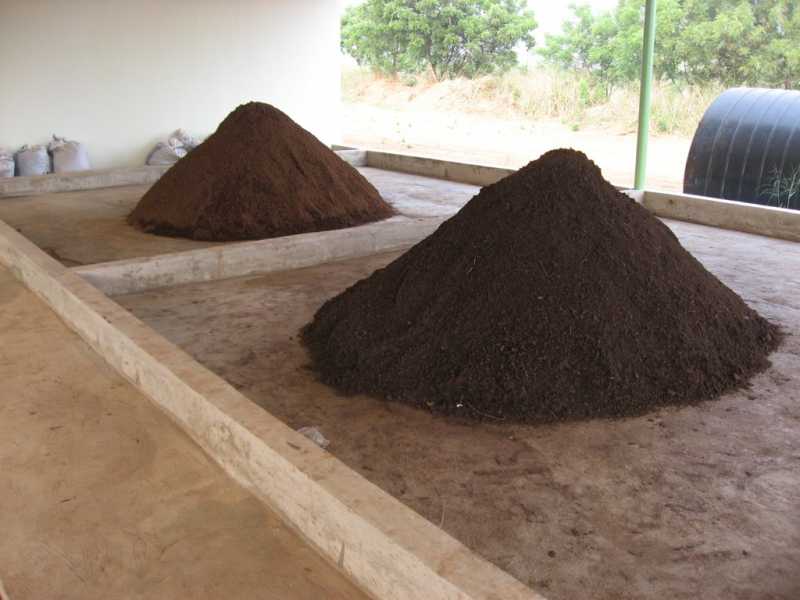 7295025114...cd_o.jpg
(Filesize: 39KB)
7295025114...cd_o.jpg
(Filesize: 39KB)
-
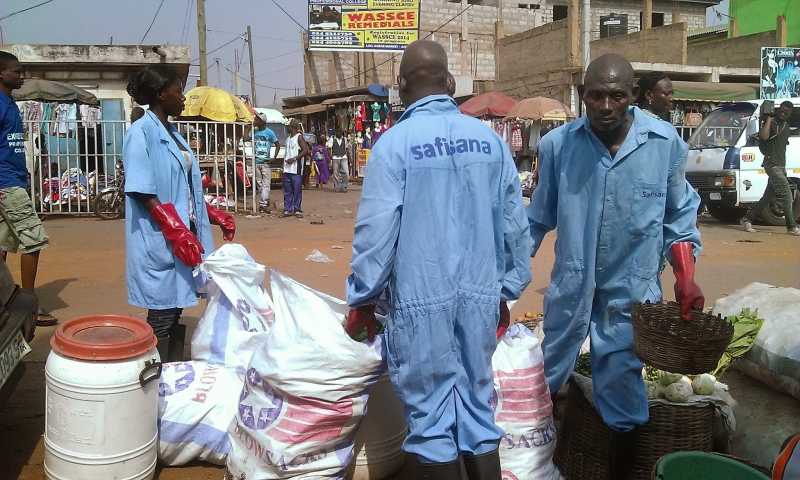 2014-01-08...5.03.jpg
(Filesize: 59KB)
2014-01-08...5.03.jpg
(Filesize: 59KB)
Please Log in to join the conversation.
You need to login to reply
Share this thread:
- Resource recovery
- Resource recovery from excreta, faecal sludge or wastewater
- Safisana – Producing organic fertilizer and biogas in Ghana
Recently active users. Who else has been active?
Time to create page: 0.535 seconds







